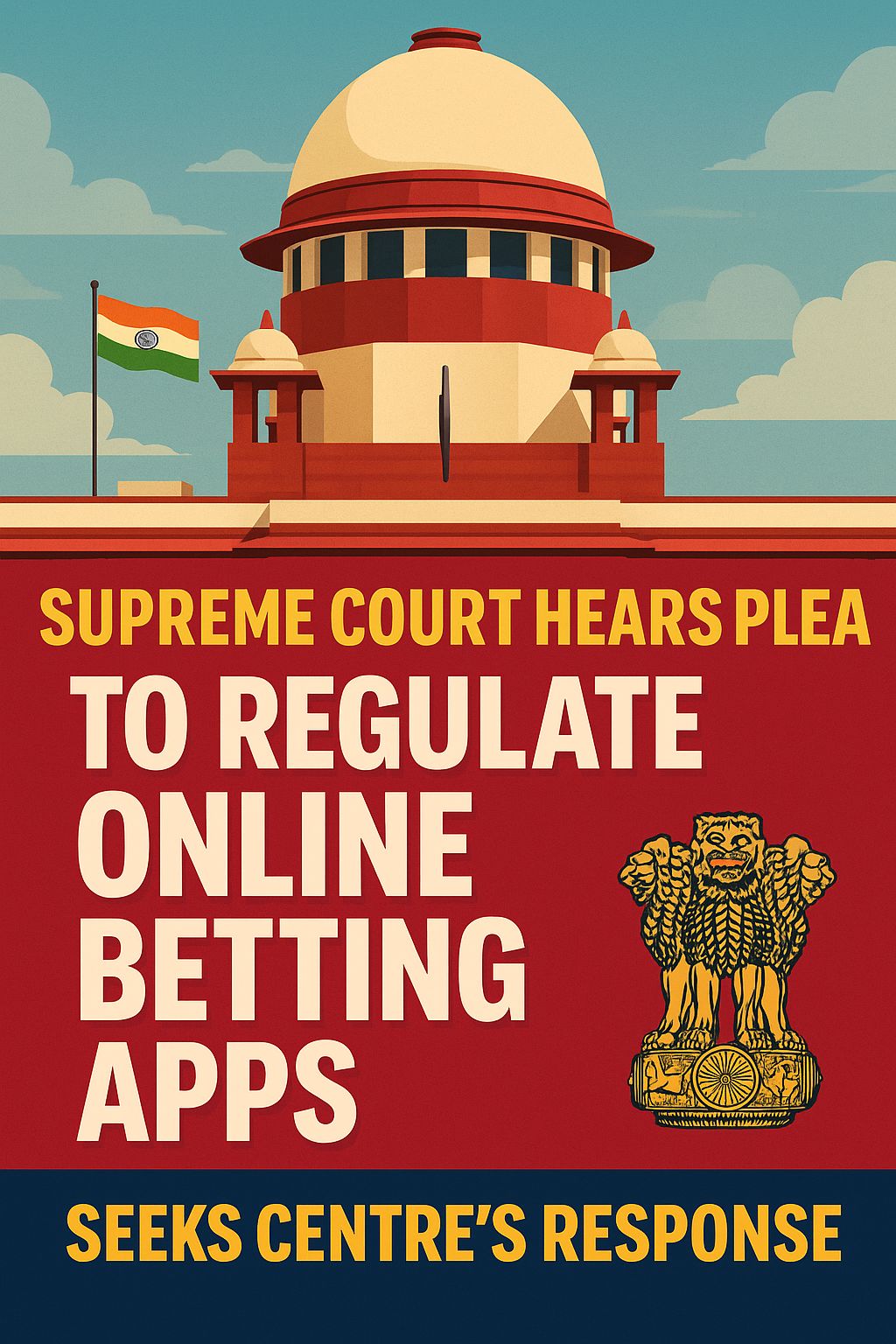Introduction
A Public Interest Litigation (PIL) was submitted by Dr. K.A. Paul, a politician and evangelist to the Supreme Court of India on May 23 2025. He asked to ban or control betting apps on both online and offline platforms. This request comes from growing concerns about how betting sites affect people and the young. The Supreme Court has now asked the Union Government to respond showing how important this issue is across the country. Context of the Petition Dr. Paul’s petition claims betting sites harm people all over the nation. He mentioned reports of over 1,000 suicides in Telangana. These deaths were linked to mental distress and debts from gambling.
He claims that these platforms are earning close to 30 crore Indians. They run their operations without proper oversight or required warnings. He stressed that these apps often skirt legal requirements and take advantage of users who are most at risk. The petition also criticizes famous people who promote betting apps singling out public figures such as cricket legend Sachin Tendulkar. Dr. Paul argued that these endorsements make gambling seem normal and help these platforms reach more influential users. The Supreme Court’s Observations The bench, which included Justices Surya Kant and N. Kotiswar Singh, saw the gravity of the matter and accepted the (PIL). Though the court agreed with the concerns in principle, Justice Kant pointed out that laws alone might not suffice to wipe out betting . He drew a comparison saying, “Just like we can’t stop people from committing murder despite laws, we may not be able to eliminate betting through legislation alone.” Still, the court saw the pressing need to tackle the unchecked spread of betting apps and asked the Union Government for a full response. The bench also said it might ask state governments to respond if needed.
Legal and Social Implications
This lawsuit sheds light on the increasing clash between tech individual rights, and society’s health.
These sites are popular for marketing them as skill-based games but in reality work in murky legal territory. In the current scenario India lacks laws to control online betting and the rules also differ from one state to another.This legal battle might lead to a clearer set of laws that either limit or control online betting. It also brings up big questions about how famous people shape public actions, and if we should hold them responsible for pushing products or services that could harm people.
Conclusion
The Supreme Court’s choice to examine the issue and ask for the Centre’s thoughts marks a key step in the ongoing talk about online betting in India. We don’t know yet if this will lead to a ban or tighter rules, but it draws attention to the urgent need to protect users—young people—from the dangers linked to uncontrolled digital gambling sites.
Author:
At Apex Law University, Bhawya is working towards a PhD in law with a focus on corporate law. She frequently writes about the nexus between technology and Indian law, and she is passionate about cybercrime and cyber abuse.

